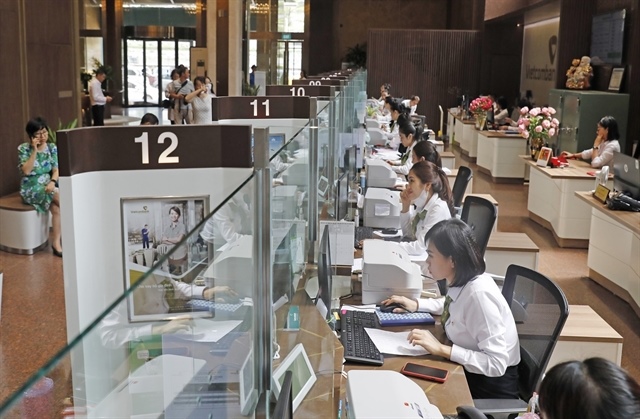Vietnam aims to boost number of stock investors by 2030
Vietnam aims to boost number of stock investors by 2030
Vietnam’s Ministry of Finance is finalizing a draft decision to boost the stock market so that the number of investors will account for 10 percent of the country’s population by 2030.

The ministry is seeking feedback on the strategy to develop the stock market from now until 2030, which sets out many important goals.
The overall goal of the strategy is to develop a stable, safe, efficient, and sustainable stock market, improve risk tolerance, and turn the stock market into a medium and long-term capital mobilization channel for the economy.
The plan is also aimed at maintaining growth in scale, focusing on quality improvement, developing green financial instruments and promoting digital transformation in the securities sector, building a market management and supervision system associated with the application of modern information technology, strengthening international links and integration, and gradually narrowing the development gap between the stock market of Vietnam and those of developed countries.
Some of the specific targets include the scale of the stock market reaching at least 100 percent of gross domestic product (GDP) by 2025 and at least 120 percent of GDP by 2030, and the scale of the bond market making up at least 47 percent of GDP by 2025 and at least 58 percent of GDP by 2030.
The derivatives market will grow by an average of 20-30 percent per year in the 2021-30 period.
The number of investors on the stock market will reach eight percent of the population by 2025 and 10 percent of the population by 2030.
The focus will be directed on developing the number of institutional investors and professional investors as well as attracting the participation of foreign investors.
The strategy is also aimed at increasing the proportion of government bonds held by non-bank investors to at least 55 percent in 2025 and 60 percent in 2030.
Vietnam will strive to raise the stock market term from frontier to emerging market status according to the standards of international organizations such as FTSE and MSCI.
The country will actively integrate into the global financial and securities markets, meet the requirements of financial security, improve competitiveness, manage risks, apply international standards and practices, and strive to reach the development level of the group of four leading countries in the ASEAN region by 2025.
To achieve these goals, the Ministry of Finance also proposed solutions such as completing the legal framework and strengthening the capacity for management, supervision, inspection, and handling of violations, increasing the supply of goods to the market and improving the quality of the supply, diversifying the investor base, improving market performance, and modernizing the infrastructure of the stock market.
It is necessary to strengthen coordination between fiscal, monetary, and other macro policies, improve the quality of human resources, and strengthen training and research, the ministry added.




























